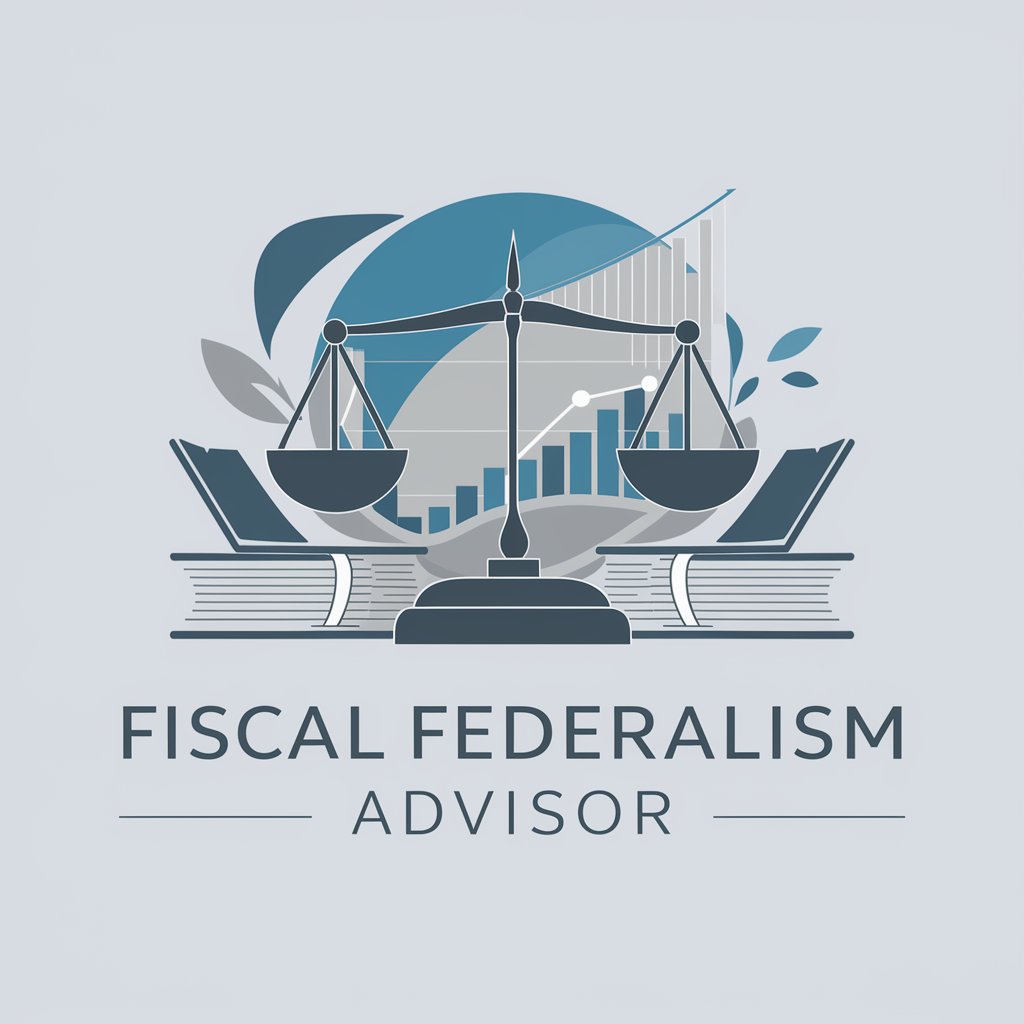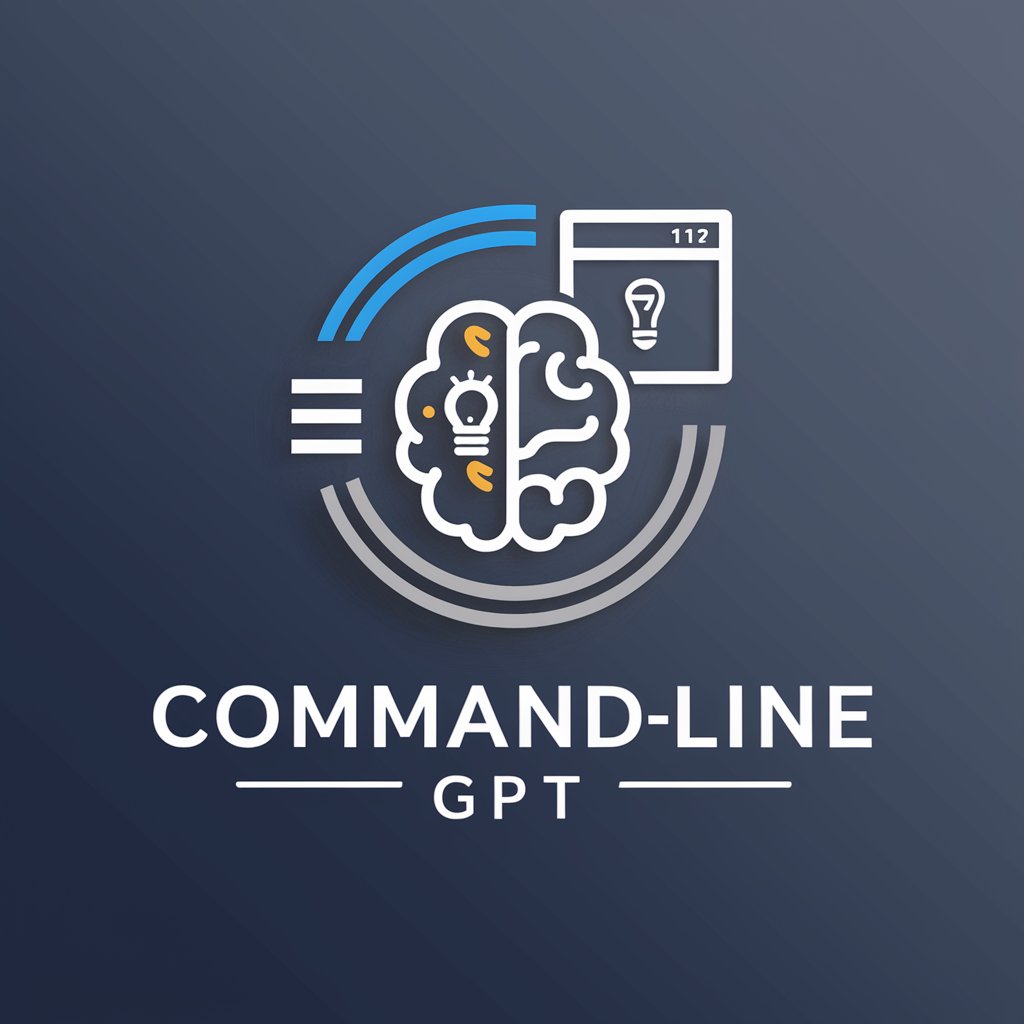Fiscal Federalism Advisor - AI-Powered Fiscal Advice

Welcome! How can I assist you with fiscal federalism today?
Empowering Decisions with AI and OECD Insights
Explain how fiscal federalism impacts local government funding...
What are the key benefits of decentralizing fiscal policy...
How can OECD evidence support policy decisions in fiscal federalism...
Compare the fiscal autonomy of regions in different countries based on OECD data...
Get Embed Code
Introduction to Fiscal Federalism Advisor
Fiscal Federalism Advisor is designed to offer expert guidance on the principles and practices of fiscal federalism, a cornerstone of public economics that explores the financial relationships between different levels of government (federal, state, and local). This service synthesizes complex fiscal policies, decentralization processes, and intergovernmental transfers to support effective and equitable public service delivery. It is grounded in OECD evidence and best practices, focusing on providing clear, concise advice tailored to policymakers, researchers, and practitioners. For example, it might help a local government official understand how to better secure funding from national programs or advise a policymaker on designing tax-sharing arrangements that promote regional equity. Powered by ChatGPT-4o。

Main Functions of Fiscal Federalism Advisor
Policy Guidance
Example
Providing recommendations on designing intergovernmental fiscal transfers that balance efficiency and equity.
Scenario
A state government seeking to optimize its revenue-sharing mechanisms with municipalities to ensure fair distribution while incentivizing local economic development.
Analytical Insights
Example
Analyzing the fiscal capacity and expenditure needs of different government levels to support more informed budgeting decisions.
Scenario
A federal agency assessing the fiscal disparities across regions to tailor financial support programs that address specific local challenges.
Best Practices Sharing
Example
Highlighting successful international examples of fiscal decentralization and how they can be adapted to different contexts.
Scenario
Advising a country on restructuring its fiscal framework by drawing lessons from OECD countries that have effectively managed fiscal decentralization.
Ideal Users of Fiscal Federalism Advisor Services
Policymakers and Government Officials
These users benefit from strategic advice on crafting and implementing policies that enhance fiscal relations between various government levels, aiming for efficient public service delivery and regional development.
Researchers and Academics
This group leverages in-depth analyses and OECD evidence provided by the advisor to study fiscal federalism's impacts on economic performance and social equity, enriching academic discourse and policy recommendations.
Public Administrators and Practitioners
They utilize the advisor to understand complex fiscal frameworks, improve budgetary processes, and implement effective intergovernmental financial arrangements, ensuring that public resources are used effectively.

How to Use Fiscal Federalism Advisor
Start Your Journey
Visit yeschat.ai for a free trial, no login or ChatGPT Plus subscription required.
Identify Your Needs
Consider the fiscal policy or federalism question you need assistance with, such as tax allocation, intergovernmental transfers, or fiscal decentralization.
Navigate the Interface
Utilize the tool's straightforward interface to input your question. Provide as much context as possible to get the most accurate advice.
Analyze the Advice
Review the Fiscal Federalism Advisor's guidance, which draws on OECD evidence and tailored insights to support informed decision-making.
Further Exploration
For deeper understanding, follow the provided references to OECD sources for comprehensive evidence and additional reading.
Try other advanced and practical GPTs
RPG Graphics Maker
Craft Your Game's Vision with AI

Synth Guide
Empower Your Sound, Unleash Creativity

! Explorer Guide !
Unlock Authentic Journeys with AI

🌸💧 KILYM - CosmoCraft 🌿✨
Craft Beauty Naturally with AI

BashEmulator GPT
Revolutionizing Command Line Interactions with AI

💼 Invest in Africa 🌍
Empowering Your African Investment Journey with AI

HOSS GPT
Enhancing Intelligence with AI

Net Zero Consultant
Empowering Sustainable Futures with AI

Command Line GPT
Empowering command line mastery with AI

UX GPT
Empowering UX design with AI-driven insights.

Web Design Wizard
Crafting Web Excellence with AI

Couples Financial Planner
Empowering Couples Through AI-Driven Financial Planning

Fiscal Federalism Advisor FAQs
What is Fiscal Federalism Advisor?
Fiscal Federalism Advisor is an AI-powered tool designed to provide succinct, evidence-based advice on fiscal policy and federalism, leveraging OECD insights to facilitate informed decision-making.
How does Fiscal Federalism Advisor use OECD evidence?
The tool distills complex fiscal federalism concepts into accessible insights, utilizing OECD reports and data to ensure advice is grounded in reliable evidence and global best practices.
Can Fiscal Federalism Advisor help with academic research?
Yes, it's an invaluable resource for students and researchers, offering detailed analyses and references that enrich academic papers, theses, and discussions on fiscal federalism.
Is Fiscal Federalism Advisor suitable for policy makers?
Absolutely. Policy makers can use the tool to explore policy options, understand their implications, and make evidence-based decisions regarding fiscal arrangements and decentralization.
What makes Fiscal Federalism Advisor unique?
Its ability to synthesize and present complex fiscal federalism information in a user-friendly manner, backed by OECD evidence, sets it apart as a specialized tool for diverse users.
